“You are all wave particles when I close my eyes. I am no more entranced by your entanglement than a butterfly is to a bee.” -Solange nicole
This past week at Starts With A Bang saw a flurry of activity, including a wonderful variety of new stories, like:
- Would a scientist bet their life on a theory? (for Ask Ethan),
- The EM Drive, NASA's 'impossible engine,' highlights our greatest failing,
- Stunning visualizations of our galaxy's magnetic field (for Mostly Mute Monday),
- Scientists redefine planet to include exoplanets, and it works beautifully,
- Keeping Better Time With Atomic Clocks (a live-blog event with nobel laureate David Wineland),
- Comet Catalina to pass by Earth for the final time,
- and Gravity's most extreme effects can now be tested in the laboratory (a great contribution by Sabine Hossenfelder).
You can now find the full stories -- if you prefer the Medium experience to the Forbes one -- from the previous week on Medium, while the freshest ones come courtesy of Forbes. That said, I'm considering everything everyone's had to say, so it's onto our Comments of the Week!
From wrathofShereKhan on gravitational lensing: "I was hoping this post might say something about the plausibility of using our sun as a gravitational lens, and sending a telescope far enough away to make it work."
The whole idea of gravitational lensing is that large masses create strong gravitational fields, bend and magnify background sources, and create that classic "lensing" effect. But the Sun, while the closest large mass to us, both isn't that massive and also is kind of diffuse. If we went "far away" from it, it might appear more like the other, ordinary stars in the sky, and unfortunately, they don't cut the mustard when it comes to creating a good gravitational lens.
![Image credit: NASA, Andrew Fruchter and the ERO Team [Sylvia Baggett (STScI), Richard Hook (ST-ECF), Zoltan Levay (STScI)] (STScI).](/files/startswithabang/files/2013/10/Gravitational_lens-full-600x453.jpg) Image credit: NASA, Andrew Fruchter and the ERO Team [Sylvia Baggett (STScI), Richard Hook (ST-ECF), Zoltan Levay (STScI)] (STScI).
Image credit: NASA, Andrew Fruchter and the ERO Team [Sylvia Baggett (STScI), Richard Hook (ST-ECF), Zoltan Levay (STScI)] (STScI).
Individual stars are pretty low in mass and also very luminous, which is a lousy combination for lensing. Unless you made the mass so compact -- neutron star or black hole-level compact -- it simply won't do. At the limb of the Sun, the maximum angular deflection of background light is less than two arc-seconds, while the lenses we're used to have distortions of tens-to-hundreds of degrees. It's just a bad choice.
From Frank Darwin on Mars' atmospheric evolution: "If mankind correct their understanding of planetary evolution. They will see mars and other’s present condition is normal for the stage of their evolution. Their current model is fiction and incorrect."
You must understand that planets come with a tremendous diversity to them, and even our Solar System -- with so few to choose from -- showcases that diversity. Venus' atmosphere, 90 times thicker than Earth's and layered with methane, carbon dioxide and acid clouds, is one example of "normal." So is Mars' atmosphere, blown off and destroyed by the loss of its magnetic field and the bombardment of the solar wind. So is Mercury's airlessness; so is Earth's life-friendly one.
If you learn nothing else from science, learn this: in any discipline, normal is a range of things. And in this particular case, all the planets are doing the "normal" thing for the conditions that they were born with and evolved from. No need to name-call because we're still learning more and better details about them!
From Li on various "theories" in science: "The limitation of massive particles to sublight velocity is theory, and I believe it will never be superceded or invalidated, for instance. Neither the Big Bang nor Evolution is “a theory”. BB is a loose framework of theories, which I doubt anyone would claim has been shown to correctly describe more than a few percent of the total energy of the observable Universe..."
You must be careful, because the limitation of massive particles to sublight speeds isn't a theory, but is rather a physical consequence that comes from a theory as well as an experimentally validated phenomenon. It's a consequence of special and general relativity, and it's the result of every experiment and observation ever correctly performed.
The Big Bang, however, truly is a theory.
Specifically, it does the three things we need a scientific theory to do:
- It explains everything that the previous "gold standard" theory did successfully as well.
- It explains previously unexplained phenomena as part of its theory: in this case, the Hubble expansion of the Universe.
- And it makes new predictions as well than can be either verified or falsified: in this case, the abundance of the light elements and the existence and properties of the CMB.
You may also want to see the excellent answer provided by Michael Kelsey:
@Li #11: I think you may have confused two different, but similar sounding, terms. At the end of your comment, you write, “… a single formally defined “theory” (constructed from a defined set of axioms and operations/processes).” Nope. That is a _theorem_, usually defined only in mathematics or formal logic (though there are a small number of theorems in physics, including some of our conservation laws).
A _theory_ in physics is a very broad based model of the world, which connects disparate features into a single explanatory framework, and which makes a wide range of predictions for the behaviour of physical systems within its framework. The Standard Model, big bang cosmology, and evolution are _all_ theories in this sense.
From Narad on Mars vs. Earth's cooling: "Mars loses its heat twice as quickly as Earth does
Now I need to go read about Mercury. Axe Cop strikes again."
I am doing my best to do you one better on this. This comment was in the context of not only Mars cooling, but it losing its magnetic field, and hence being stripped of it's atmosphere. Now, I may be a theoretical astrophysicist, but I'm not a planetary scientist who specializes in bodies smaller than Earth. But I am working to get one to contribute to Starts With A Bang, and to take on this very topic as her first contribution. Your Patreon support makes stories like that possible, so stay tuned!
From Achuah on the EM Drive: "If you get a chance, you really ought to look up the “Dean Drive”. There’s very little new under the sun . . ."
I had never heard of the Dean Drive, so I looked it up, and I've got to say it has a lot more in common with Rossi and the cold fusion scammers than it does with Roger Shawyer, who's likely fooling himself.
 Image credit: Wikimedia Commons user Nonamenonamenonamenoname, infringing on all sorts of copyrights but using it anyway under the fair use act suck it monkeys that's right I said it what are you gonna do about it?!
Image credit: Wikimedia Commons user Nonamenonamenonamenoname, infringing on all sorts of copyrights but using it anyway under the fair use act suck it monkeys that's right I said it what are you gonna do about it?!
From the 1950s until his death in 1972, inventor Norman Dean claimed to have created a device that generated exhaust-less thrust, through some undetermined mechanism he called "gravitational-inertial radiation" which conserved momentum, although it was invisible.
Sound like garbage? That's because it's garbage. After Dean died, his laboratory was raided, and no working devices were found. No verification ever occurred; no scrutiny ever was allowed during his life.
On the other hand, Shawyer's device requires kilowatts of input power, and produces microNewtons of thrust, which is on the same order as the errors of the measuring device. As commenter eric explains:
Their equipment components are undergoing thermal expansion when they turn the thing on, and it’s screwing with their measurements. Given the very small amount of thrusts involved and the extraordinary nature of their claim, I think its safe to say that they have not yet convincingly ruled out experimental error in favor of some new physics.
When it comes to science, credulity in the unverified is one of the worst things you can do. If you want a little amusement, check out the "all comments" (not the top ones I called out) over on Forbes, and see the crazies who showed up. Thankfully, the commenting system there lets me leave them wallowing in obscurity, where they belong.
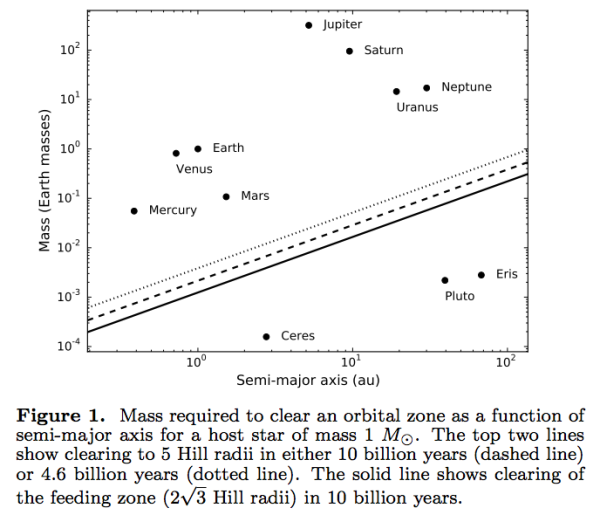 Image credit: Margot (2015), via http://arxiv.org/abs/1507.06300.
Image credit: Margot (2015), via http://arxiv.org/abs/1507.06300.
From Noah Merritt and Sinisa Lazarek on the problems with Forbes, and fixing them:
I’ve enjoyed your writing for a long time Ethan, and learned so much. Unfortunately the god-awful ad cluttered wasteland that is forbes is just too painful to endure. How can a person feel the awe of contemplating the universe while being bombarded with crap ads from all directions? Thank you for your great contribution, I’ll look for you anywhere but Forbes.
@ Noah, David
Use add blocker plugin and enjoy www as it was meant to beOnce I installed Firefox, the ad block extension was easy to add.
I now open Forbes, lo and behold, the nasty film of ad scum has been scraped from my Ethan supplied view of the universe.
Thank you for the suggestion…No problem
glad to help..
This is a beautiful example of what a comment thread can be. You guys all did awesome. Also -- for those who don't use ad block for whatever reason -- there was a particularly egregious ad Forbes was pulling that was slowing everything down, and I pointed it out to them, and they took it down. So although, yes, they load lots of ads, the most offensive one is gone. You can always wait a bit and enjoy the experience at Medium, if you want a completely ad-free experience.
From Denier on quantum entanglement: "Sabine rules! Long live aether, or LQG, or anything that treats space-time as something other than just a coordinate system for overlapping inertial frames of reference."
I think it's very, very fair to say that, at a fundamental (quantum) level, we truly don't understand the nature of spacetime. Is space discrete or continuous; is time? Are they fundamental entities, or do they emerge from some set of interactions?
One of the reasons I like Sabine's writing is that she has opinions on these matters, but she can entertain all manner of possibilities without adhering to or rejecting them outright, unless the evidence tilts the scales in one direction or another. That's good stuff.
And finally, from Sinisa Lazarek on black hole/fluid analogies: "But remember that fluid dynamics wasn’t replacing the math of QM.. instead it offered a novel way of visualizing certain aspects of QFT much better than with standard methods. In other words, it gives answers and presents ways of “asking questions” that wouldn’t be available or would be much more difficult without using fluid dynamics."
These analogies are actually very popular, and extend to many aspects of material science (or condensed matter systems) that explore regimes that theoretical physics cannot in the actual Universe.
Magnetic monopoles in nature? No way! But artificial monopole analogies in spin ice? We're in!
Entangled photons entering/exiting a black hole? No way! Entangled phonons entering/exiting an artificial barrier? You got it!
It's a way to set up analogue systems that we think obey the same physical laws, and observe the phenomena that we could never otherwise test. Now, they're not true tests, they're only tests that are as good as the analogies we make. but it sure is remarkable that we can test it at all. And that's a pretty damned good week!

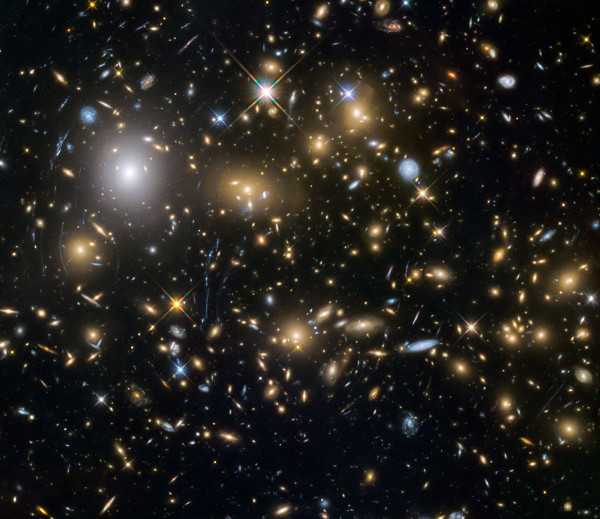

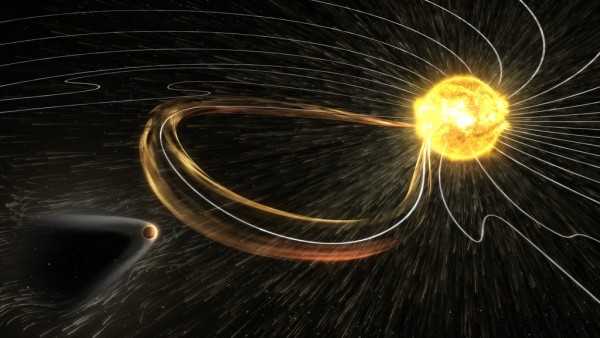

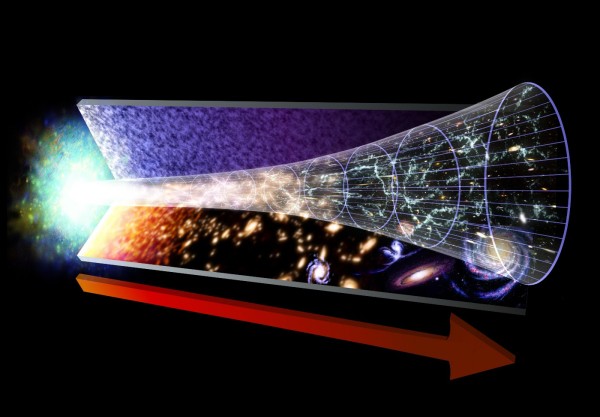



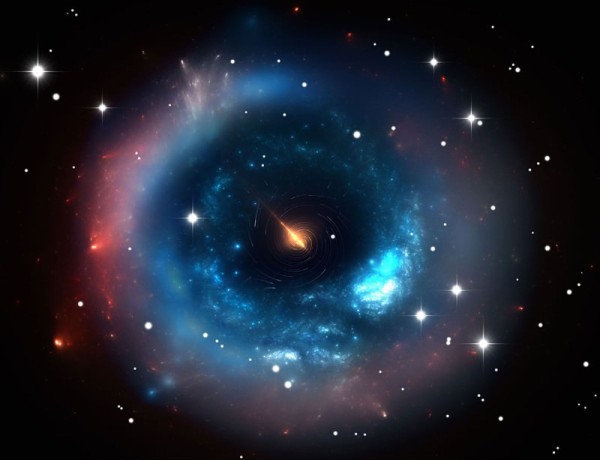
But in a fundamental way, LQG doesn't do away with space being treated "as something other than just a coordinate system for overlapping inertial frames of reference.”.
The closest one to doing that is String Theory.
Demonstrating denier doesn't know what LQG is, but thinks that it somehow brings back an absolute frame or reference, which is his hobby horse.
Ethan: those analogue systems really don't obey the same physical laws. Space where a gravitational field is, is *not* falling down like some Chicken-Little waterfall. The notion that it does totally contradicts general relativity. IMHO you should write your own articles instead of linking to popscience rubbish written by some blogger who is promoting themselves as an expert when they're absolutely not.
Re the EM drive (???)
http://www.space.com/29363-impossible-em-drive-space-engine-nasa.html
One would have better luck finding a used UFO & copying that technology !
@ #2 John Duffield & #3 PJ
There’s no need to invoke GR workability in the context of an experimental analogue. After all, if analogies were perfect they would cease to be analogies.
You’re quite right, though. Any type of “push” gravity, presumably particle derived, cannot possibly exist. Physicist Richard Feynman dealt a comprehensive and complete death blow to that concept many years ago.
Under GR a type of de facto pull gravity rules, therefore interstellar travel and the putative existence of swarms of alien atmospheric flyers (AKA UFOs) cannot possibly exist, so continuing to question the validity of current gravitational theory by proposing: … a gravitational field (…) falling down like some Chicken-Little waterfall is, thanks to chuckling Richard Feynman, no longer necessary.
"Ethan: those analogue systems really don’t obey the same physical laws. "
Analogue, again, john. Analogue.
Look up what the word means. Every time you bugger up the meaning by not understanding it and refusing to think, you destroy your ability to be taken seriously and be considered when you actually DO have a point to make that is valid.
Of course you may not care.
PJ, NASA usually have some whacko "invention" under skunkworks. It's just in case one of them actually has merit or something new occurring.
If you think that they're stupid, look at the historical records of the Department of Defence (I assume they did the same stuff as our Ministry did) during WWII. Desperate for an edge and unwilling to let "Jerry get there first", and worried that they will ignore something that would turn the tide, they considered some really DUMB things.
Because very occasionally, one of them would work.
"Analogue, again, john. Analogue."
Splitting of hairs AGAIN Wowzer? Enough already, go do something productive on a Sunday for once.
All points noted guys. See this where Einstein was talking about what's nowadays called the "coordinate" speed of light varying with position. Also see this in the article "Steinhauer traps the superfluid condensate with electromagnetic fields and puts it in motion with laser light to generate a flow. He does not change the velocity of the flow, but instead the density of the condensate which affects the speed of sound". For an analogue that matches GR, he has to contrive a central region where the speed of sound is zero. Think about the vertical light beam. It doesn't slow down, or fall back, or curve round. But it doesn't get out. Because the coordinate speed of light is zero.
"“Analogue, again, john. Analogue.”
Splitting of hairs AGAIN Wowzer? "
Given that the entire point is it's an analogue, and given that it';s already once been ignored and gotten entirely and deliberaltely (well, he could claim he's dumber than a sack of hammers but this doesn't seem likely), it's definitely NOT "splitting hairs" to point out it's an "analogue".
I guess you're just hatin'. 'cos how DARE I correct Mr Duffield, eh?
PS what is productive about claiming "Splitting hairs!!!"?
Doubly so when it's entirely wrong.
John, you're making another analogy, between light and sound.
Check whether the analogy works or breaks down.
NOTE: the ATL analogy ALSO breaks down and the analogy holds only weakly to this effect, based on our current understanding of it. The real universe may know something we don't, and the analogy may not be as good as we calculate. But if you have a thought this is the case, then show us what you've worked out about gravity that the rest of the science world has not found out yet.
@Wow : I haven't worked anything out. I've just read the Einstein digital papers. So for example, I know that a curvature of rays of light can only occur where the speed of light varies with position. Einstein said this umpteen times, and was still saying it in 1920. It doesn't curve because spacetime is curved, that's misleading. Einstein never said that. And it definitely doesn't curve because space is falling down. That's not misleading, that's totally at odds with everything Einstein ever said.
"@Wow : I haven’t worked anything out. "
You could have left it there and be done.
"I’ve just read the Einstein digital papers"
Did you understand them? Evidence indicates otherwise.